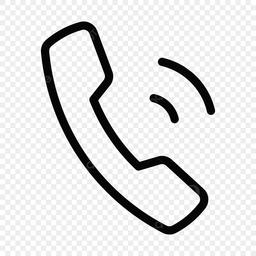Why is gauge for baling wire important?
Gauge is important for baling wire because it serves as an indicator of the thickness and relative strength of a given wire, which will in turn give you an idea of what applications a given wire is best suited for. It is also an important consideration for factors like safety, cost, and compatibility.
What is gauge?
Gauge is a measurement of thickness that is used to size baling wire. Gauge inversely relates to wire diameter, meaning a higher gauge number corresponds to a smaller diameter wire. This is because gauge refers to the number of times a wire has been drawn and stretched through progressively smaller dies during manufacturing. A 12 gauge wire, for example, has been drawn through twelve dies, decreasing its diameter each time.
The American wire gauge chart is one of the standard tools used to identify wire diameter and current capacity. In the context of baling, gauge is important because it correlates to tensile strength and load strength, which are important factors to consider for durability, safety, cost, and application suitability. Gauge has a large impact on wire durability and safety during the baling process.
Impact on strength
Baling wire gauge demonstrates the relationship between wire thickness and tensile strength. A lower gauge number represents a thicker wire, and a thicker wire will generally offer greater tensile strength.
Wire gauge also impacts load strength, which refers to a wire’s load-carrying capacity. As with tensile strength, load strength increases with wire thickness. For example, our 12 gauge black annealed box wire has a maximum load strength of 676 lbs, while 10 gauge black annealed box wire has a maximum load strength of 1,118 lbs.
Thicker wires with lower gauges are used for applications that demand higher tensile and load strength, such as baling plastics, fencing for large animals, or heavy-duty binding of dense materials in industrial recycling.
Cost-effectiveness
Some recycling operations may simply choose to select a smaller gauge wire to guarantee strength and durability needs are met. Smaller gauge wire is more expensive, and it’s also heavier, which increases shipping costs. Without the proper consideration of operational costs and requirements, businesses may end up overspending.
Impact on safety and efficiency
The gauge of bale wire can impact operational efficiency and safety. Some balers are designed to be used with specific wire gauges. If the wrong gauge wire is fed into a baler, it might damage the machine, cause unwanted downtime, or cause a safety hazard. Horizontal balers, for instance, typically use 11–13 gauge baling wire, while auto tie balers may use 10–12 gauge baling wire. While you should follow product recommendations for your baler, here are some general guidelines:
- Vertical balers commonly accept 12, 13, or 14-gauge wire.
- Horizontal balers commonly accept 11–13 gauge wire.
- Single-ram auto-tie balers commonly accept 10–12 gauge wire.
- Two-ram auto-tie balers often require slightly thinner wire in 11–13 gauge.
Inappropriate wire gauge can lead to wire breakage or equipment damage that can be extremely costly. Protect the longevity of your baling equipment and maintain a safe working environment by using the right wire gauge for your operations.
Application-specific considerations
The type of material being baled also plays a role in determining which wire gauge or range of gauges is most appropriate. Some common guidelines for choosing wire gauge by material type are as follows:
- Cardboard can be baled with 11–14 gauge wire.
- Foam can be baled with a heavier 11 gauge wire.
- Office paper can be baled with 11–13 gauge wire.
- Plastic can be baled with 11–14 gauge wire.
Our wire gauge chart
|
Gauge |
Regular galvanized wire (inches) |
Hi-tensile galvanized wire (inches) |
Black annealed wire (inches) |
Single loop bale ties (inches) |
(inches) |
|
9 |
NA |
NA |
NA |
NA |
0.148 |
|
10 |
NA |
NA |
0.135 |
NA |
0.135 |
|
11 |
0.117–0.119 |
0.119–0.121 |
0.120 |
0.117–0.119 |
0.120 |
|
12 |
0.102–0.104 |
0.104–0.106 |
0.105 |
0.102–0.104 |
0.105 |
|
12.5 |
NA |
NA |
NA |
NA |
0.099 |
|
13 |
0.088–0.090 |
NA |
NA |
0.088–0.090 |
NA |
|
14 |
0.077–0.079 |
NA |
NA |
0.077–0.079 |
NA |
Refer to our baling wire gauge guide for more detailed wire gauge information.
Baling wire products we offer
Baling Wire Direct sells the following high-quality baling wire products.
Baling Wire FAQ
Didn't find your answer?
Our team is just an email away and ready to answer your questions


